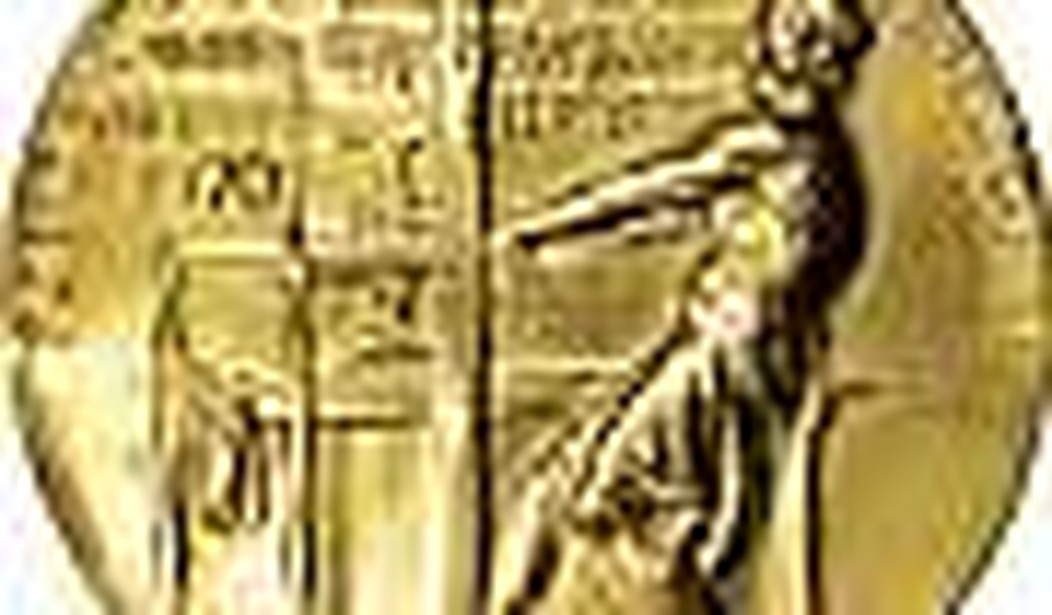Today’s question is: “What’s a committee to do when it’s charged with awarding prizes for top quality newspaper journalism — if the newspapers aren’t around anymore?”
The Pulitzer Prize committee recently answered that question by announcing that newspapers no longer need a corporeal form but, instead, may exist solely in cyberspace. Joseph Pulitzer, after whom the prize was named, would no doubt be delighted by the committee’s willingness to embrace the future. I suspect, though, that he would also be dismayed by the committee’s periodic habit of elevating leftist ideology over sound journalism — a trend that will no doubt continue even in cyberspace.
Joseph Pulitzer, a half-Jewish, half-Catholic immigrant from the old Austro-Hungarian empire, was a military mad youth who, for a fee, came to America to fight in the Civil War. At war’s end, he combined native intelligence, hard work, and sound journalistic skills to become one of America’s leading newspaper publishers and a father to the investigative journalism that swept America at the beginning of the 20th century. It was Pulitzer who articulated the modern American journalistic credo, one founded firmly in the Constitution (and one that many modern journalists apparently forgot in the heady months of the Obama candidacy):
Our Republic and its press will rise or fall together. An able, disinterested, public-spirited press, with trained intelligence to know the right and courage to do it, can preserve that public virtue without which popular government is a sham and a mockery. A cynical, mercenary, demagogic press will produce in time a people as base as itself. The power to mould the future of the Republic will be in the hands of the journalists of future generations.
With this high-flown message in mind (and with a generous donation from Pulitzer’s estate in hand), both the Columbia School of Journalism and the Pulitzer Prize came into being. In the 90 or so years since then, the prize committee has successfully recognized many exemplary books, newspaper articles, plays, and photographs.
The committee has also made some fairly spectacular mistakes, most memorably its disgraceful decision to award the 1932 prize to Walter Duranty for his series of grotesque propaganda pieces touting the alleged economic miracle of the Soviet Union. In 1981, the committee was taken in completely by Janet Cook’s faked articles about an eight-year-old heroin addict.
In recent years, thanks to the Internet, criticisms about the committee’s leftward tilt have grown a bit louder. In 2005, conservatives were outraged that the committee awarded the photography prize to an AP stringer who demonstrably had an uncomfortably and immorally close relationship to terrorists in Iraq. The outrage soared again in 2006, when the committee proudly awarded laurels to two newspaper articles that compromised American security. (Given Joseph Pulitzer’s love for the military, I doubt he would have been very pleased with that decision.)
Still, criticisms notwithstanding, the Pulitzer Prize is still a big deal in the journalistic world. The question, though, is how much longer the journalistic world that the the Pulitzer Prize celebrates will exist. With the New York Times mired in debt, and the Tribune Company (which publishes the Los Angeles Times and the Chicago Tribune) in bankruptcy, it’s anybody’s guess whether journalism as we’ve known it will still be around a few years from now.
Recognizing the handwriting on the wall, the Pulitzer Prize committee has decided to be proactive. In addition to traditional print media, it will now recognize contributions from a narrowly described range of publications that exist only in cyberspace:
While broadening the competition, the Board stressed that all entered material whether online or in print should come from United States newspapers or news organizations that publish at least weekly, that are “primarily dedicated to original news reporting and coverage of ongoing stories,” and that “adhere to the highest journalistic principles.”
In theory, this sounds like a very good idea. In fact, the committee’s track record, especially in recent years, leads one to believe that it will cling to the old progressive stalwarts, whether they appear in hard copy or virtual form, and will shun the exceptional investigative reporting that routinely emanates from the conservative blogosphere.
You may recall that it was bloggers whose investigative efforts broke open the Rathergate scandal. Likewise, it was a constant drumbeat from bloggers that kept the execrable Bill Ayers, Reverend Wright, Father Pfleger, etc., in the public eye, even when the print media couldn’t be pried away from its leg quivering hagiographic reports about Barack Obama. It was also dedicated work from bloggers that exposed the myriad lies in news coverage about the 2006 Israel-Hezbollah war.
Admittedly, bloggers are often a diffuse crew, with data streaming in from points all over the globe. Nevertheless, all of us recognize important consolidators, those bloggers who, functioning in the manner of traditional journalists, combine independent investigation with the synthesis of myriad disparate sources to create lucid exposes and analysis of current events.
For example, Bob Owens, writing at Pajamas Media and his own blog Confederate Yankee, used his investigative skills to humiliate the venerable New Republic magazine, which had blithely printed Scott Beauchamp’s appalling stories painting troops in the American military as psychopaths right out of A Clockwork Orange. Again, the traditional media unquestioningly accepted a narrative that fit into its world view (the Walter Duranty stuff all over again), but a dedicated, inquisitive, intelligent blogger ferreted out the real story.
In a just world, the prize committee would recognize bloggers such as Owens for their contributions to truth, justice, and the American way. But this isn’t a fairy tale, there’s no Superman, and I can assure you that, cyberspace contributors notwithstanding, the prize committee will continue to award prizes to a bizarre mélange of decent reporters and progressive crackpots, all the while assiduously ignoring the wonderful citizen journalism that is keeping alive Joseph Pulitzer’s deep commitment to an able and public-spirited press.









Join the conversation as a VIP Member